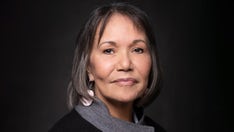Fox News Flash top headlines for September 10
Fox News Flash top headlines are here. Check out what's clicking on Foxnews.com.
A newly revealed 2019 book burning in Canada has politicians and voters up in flames, with many denouncing the act - no matter the "symbolic" intention.
An Ontario francophone school – a school that mixes English and French lessons – initiated a "purification" ceremony in which it burned around 30 books of "questionable" content for "educational purposes." Ashes from the burned books were used as fertilizer for a tree.
The Conseil scolaire catholique Providence, which oversees grade-school education in southwestern Ontario, did not make the ceremony public, but details about the event surfaced during the election campaign for the Indigenous People’s Commission.
Canadian Prime Minister Justin Trudeau addressed the controversy during a campaign stop this week, saying, "On a personal level, I would never agree to the burning of books."
The prime minister did stress, though, that it is not for non-Indigenous people "to tell Indigenous people how they should feel or act to advance reconciliation."
The project extended to thousands of books that were removed from libraries at 30 schools and have either been destroyed or are in the process of being recycled, but only the initial 30 were burned.
FURIOUS CROWD FORCES JUSTIN TRUDEAU TO CANCEL CAMPAIGN EVENT: ‘NEED FREEDOM’
Titles that were burned included "Tintin in America," "Asterix and the Indians" and three Lucky Luke comic books, as well as novels and encyclopedias, Barrons reported.
"It was a gesture of reconciliation with the First Nations and a gesture of openness towards other groups represented in the school district and in society," Lyne Cossette told Radio-Canada, citing works that contained "obsolete and inappropriate content."
"We regret that we did not intervene to ensure a more appropriate plan for the commemorative ceremony and that it was offensive to some members of the community. We sincerely regret the negative impact of this initiative intended as a gesture of reconciliation," Cossette wrote.
TRUDEAU MINISTER RAISES EYEBROWS BY CALLING TALIBAN ‘OUR BROTHERS’
Yves-Fran çois Blanchet, leader of the Bloc Québécois, told reporters "we don’t burn books."
"We expose ourselves to history, we explain it, we demonstrate how society has evolved or must evolve," he explained.
Chairperson Suzy Kies resigned Wednesday from her post as the co-chair of the Indigenous People’s Commission due to questions over her indigenous origins and her involvement in the ceremony.
CLICK HERE TO GET THE FOX NEWS APP
"I refuse to have my story used to harm Justin Trudeau and our party," Kies said in a statement, according to the Toronto Sun. "This is the reason why I am resigning from my position as co-chair of the Indigenous People's Commission."
Reconciliation, the process by which Canada works to acknowledge its troubled past with the First Nations people and works to pay back the people affected by its actions, has taken sharper focus this year after the discovery of hundreds of unmarked graves of indigenous children forced to attend residential schools intended to assimilate them into the Canadian culture in the late 1800s.










































